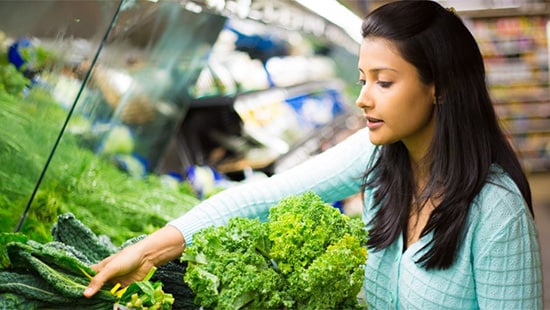Protecting Produce

Food safety is in the news and contaminated produce has been a major culprit in 2018. The North American romaine lettuce recall just before the holidays left store shelves bare and consumers scrambling to modify their menus. The resulting financial losses were compounded by a loss of consumer confidence. Protecting the food chain demands insight, action and partnership. Together, we can drive food safety progress by innovating new technologies that acquire hard data and put it to work, and by supporting and collaborating on leading-edge research and entrepreneurship. Breakthrough advances to protect produce across the supply chain are in all our best interests – as industry leaders and as consumers around the world.
As our environment changes, factors across the food chain come into play. Pests, for example, are adapting rapidly to changing climate zones. Warming temperatures expand the range of both insects and microorganisms and affect crop growth for better or worse. One of the most effective paths to understanding the impact of environmental change is to support academic research. Recently, the Ecolab Foundation made an endowment to the University of Minnesota to fund environmental sustainability research and education in our home state. The gift will establish an endowed chair for Environmental Leadership and fund scholarships for studies across a range of sciences with a focus on sustainability. We look forward to a future of academic research that positively impacts important public health issues such as the safety of our food supply.
It is equally important that we encourage entrepreneurship within our collective industries. Ecolab is proud of our collaboration with Cargill on the TechStars Farm-to-Fork Accelerator in St. Paul, MN. Through this unique business accelerator, we have challenged entrepreneurs to advance new digital technologies for the food industry. This opportunity has provided mentorship and connection to several energetic, talented teams with fresh new ideas. For example, HeavyConnect, created a smart, simple, bilingual mobile app that farm operations can use right in the field. The app allows workers to create reports, track them at the source and document corrective actions. The success of the 2018 TechStars teams is building anticipation for the future and we are excited to support development of the best and brightest new tech for the food industry.
Like the TechStars entrepreneurs, we are rooted in the game-changing impact of breakthrough technologies across the food-supply network. In produce processing plants, for example, we can now monitor flume water from inside the system using sensor technology. Real-time data allows for precise action. If the flume water chemistry goes out of spec, you can see exactly when that happened, reducing produce waste and lost operating time. Actionable data lets operators use exactly the right amount of chemistry, titrated at exactly the right time. Access to precise data reporting improves regulatory compliance, keeping processing plants audit- and inspection-ready. Real-time information, automation and reporting provide critical links in food-chain safety.
Our increasingly data-driven landscape brings exciting tech opportunities in food safety for retailers as well. A network of new data collection and analysis tools provide operational insight into sanitation compliance and safe food handling practices. Accountable, accurate record keeping helps reduce inefficient store cleaning practices and wasted water, labor and energy. Actionable data benefit profitability and sustainability. Further, retail customers are reassured by a visibly clean store and abundantly fresh produce on the shelves. By working together and developing tools that put data to work on specific challenges, we can help identify risks and resolve issues proactively. Shared knowledge and working together help keep us all ahead of the curve.
The GFSI Working Groups provide a remarkable opportunity to collaborate directly with colleagues, and even competitors, from across the industry. We are privileged to work most recently on the role of Chemistry in Food Hygiene. At this year’s conference, Ecolab’s own Dr. Ludger Grunwald will present the findings, to date, of this GFSI working group in their presentation on The Future of Microbiology. With this kind of teamwork, we gain deep insight into collective challenges through a wide variety of lenses. We collaborate on solutions. We explore new chemistries and application technologies. We find ways to increase food safety faster, more efficiently and more safely for workers and consumers. Collaborating with academics and entrepreneurs, doing research in-house and across industries, we drive innovation to get safe, clean produce to market. When we come together as peers in venues like GFSC, we learn new ways of thinking about both issues and advances in food safety.
Through partnership and collaboration – from customers, entrepreneurs, food suppliers and retailers to the University of Minnesota and GFSI – we are making strides, together, to protect our produce. As industry leaders and GFSI members, we have a responsibility and an opportunity at every touchpoint in the supply chain. We look forward to learning from – and contributing to – this year’s GFSI Conference. Together, GFSI enables us to incubate fresh ideas, cultivate smart data and the solutions it offers, and grow a healthier supply chain that delivers fresh, safe produce around the world.


